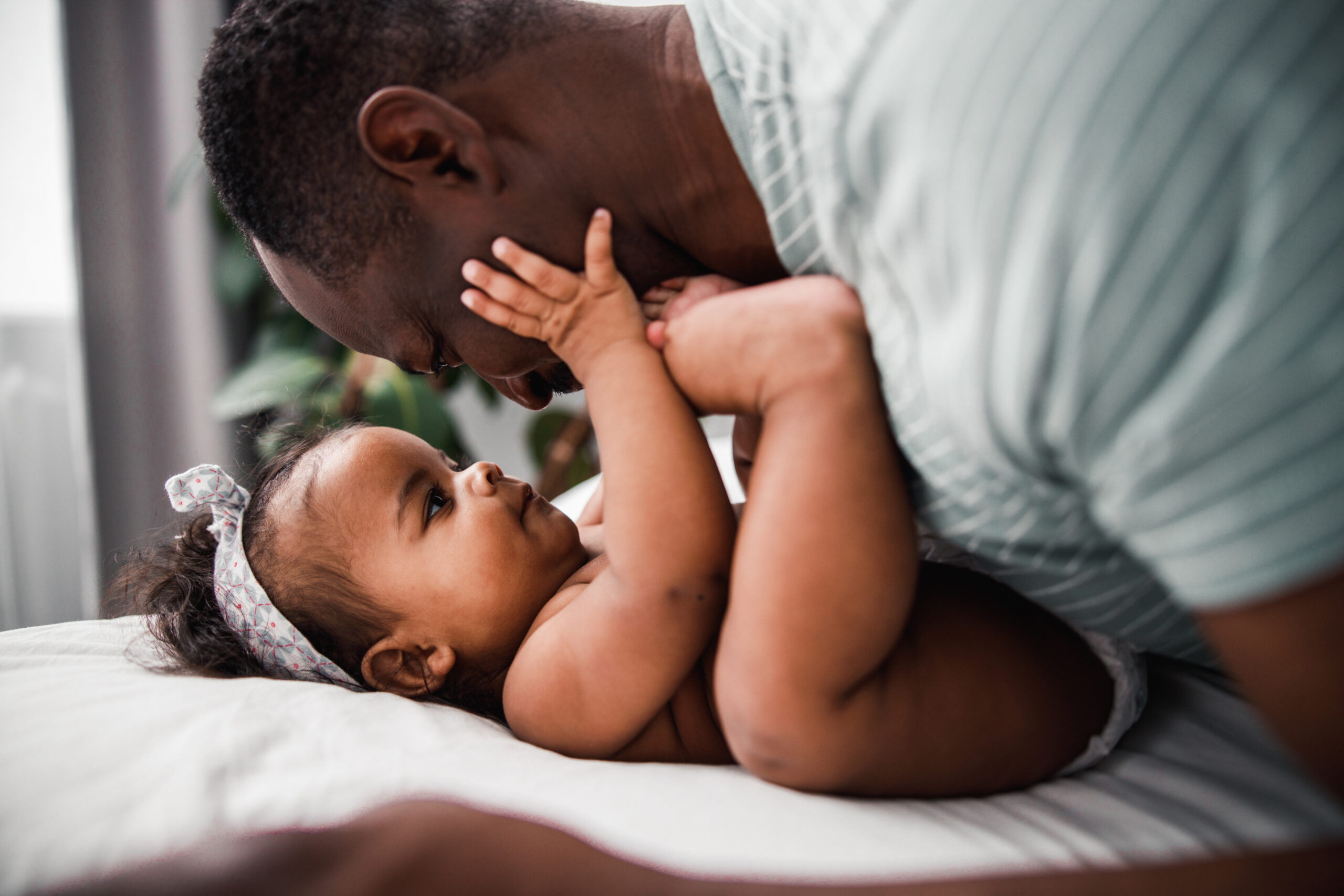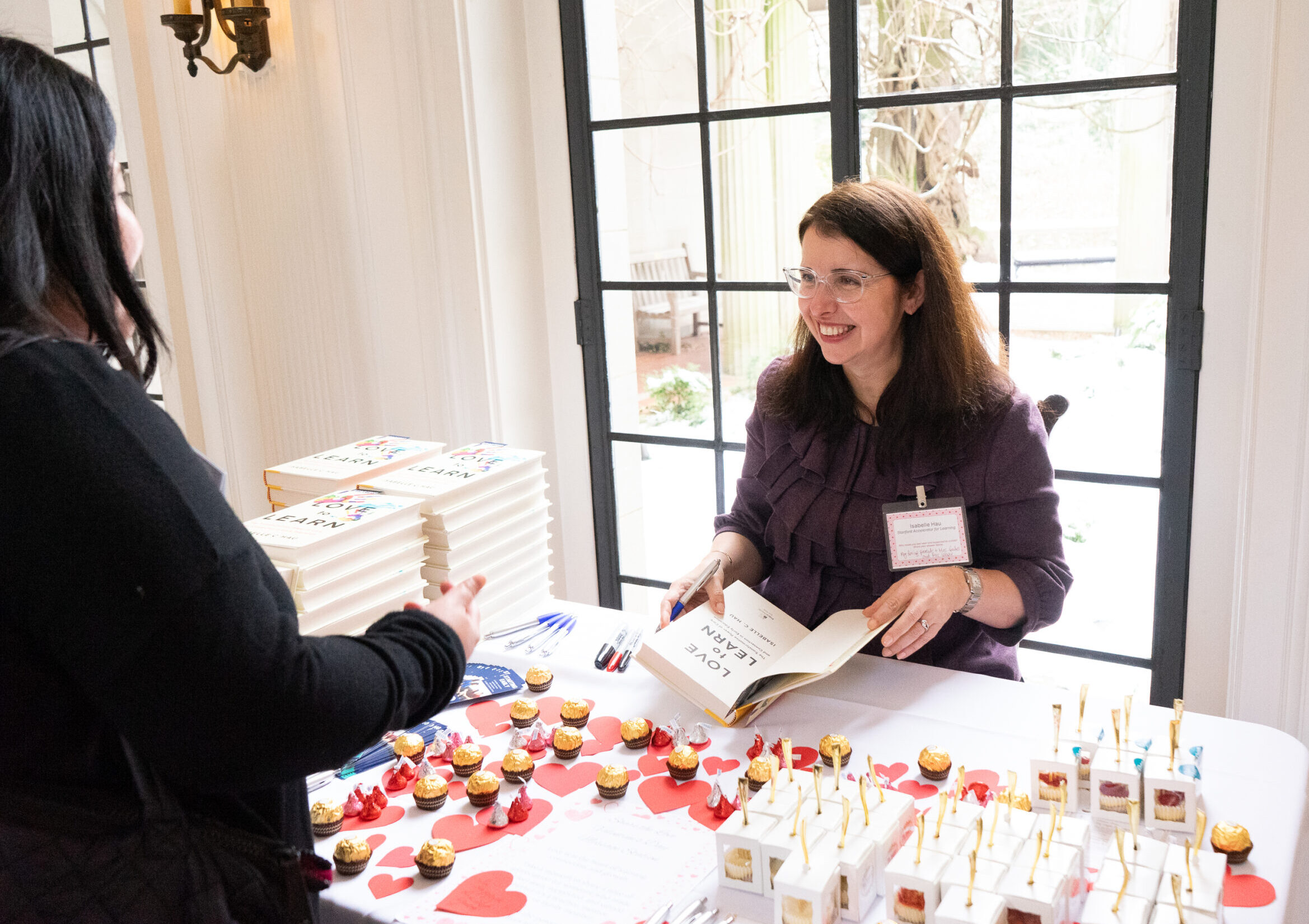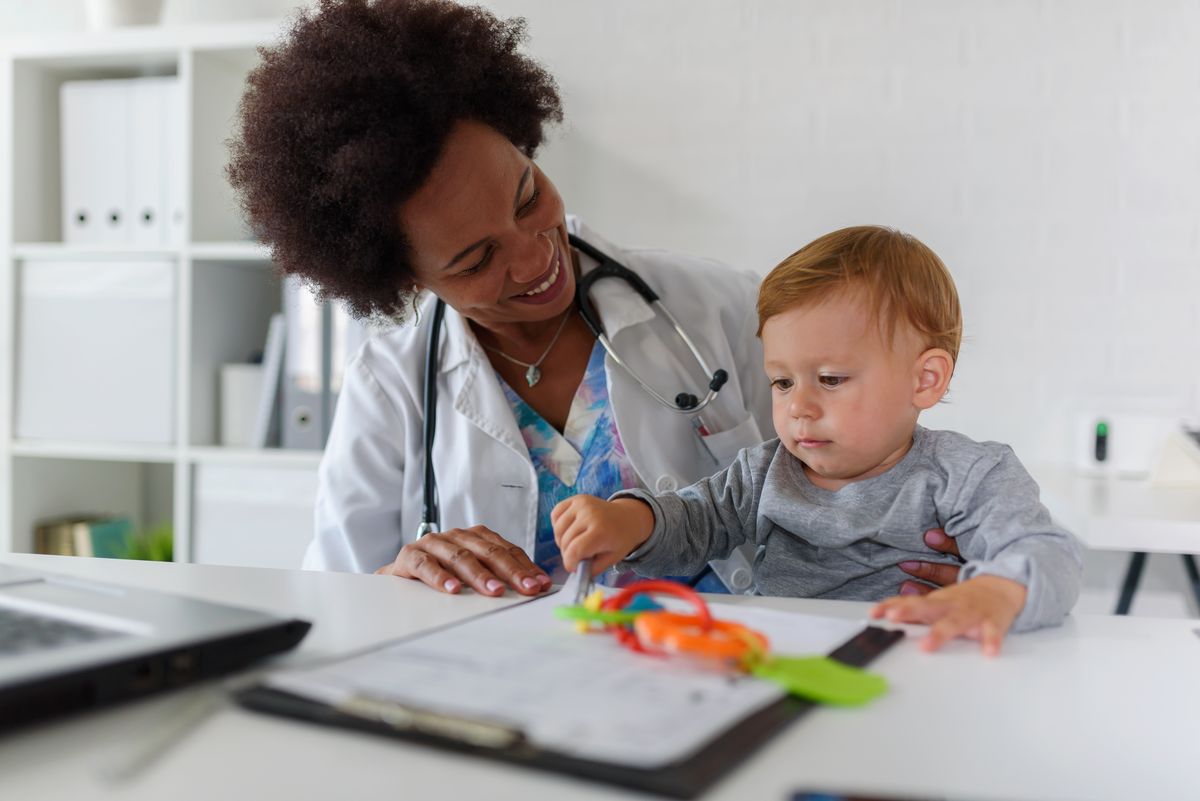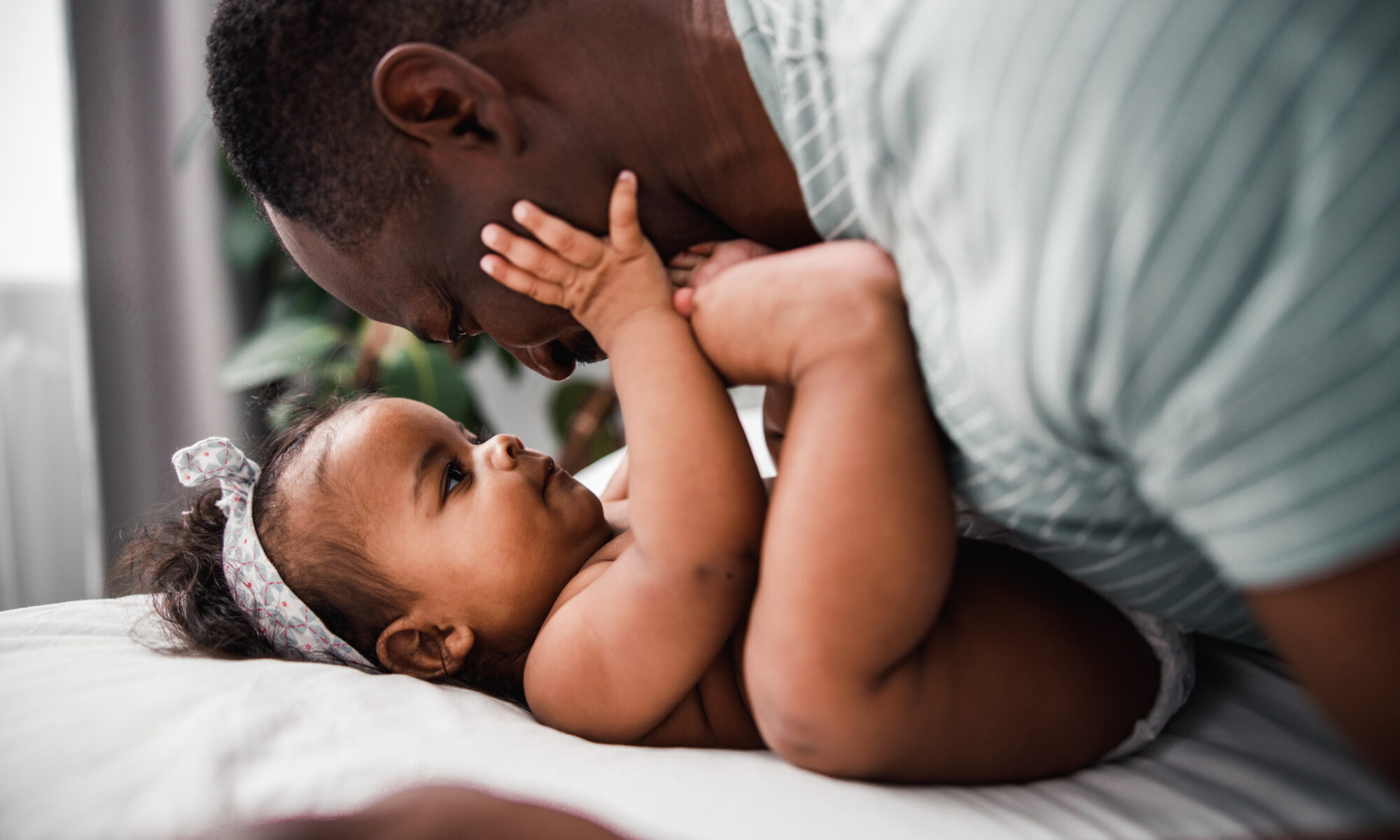👋 “Love fuels learning,” as Isabelle Hau says in her powerful new book, Love to Learn: The Transformative Power of Care and Connection in Early Education.
I know this firsthand because a rare health condition kept me out of recess during kindergarten. Instead I spent extra time with my teacher — reading, talking, and forming a close bond.
Now I realize how that time together gave me the confidence to question, explore, and grow. The connection between love and learning was shaping me before I even had words for it.
Love to Learn reinforces what science has shown for decades: For babies and young children, loving relationships are as essential to health and happiness as food and shelter, and critical for cognitive development.
But forming those bonds is extremely challenging for many parents and caregivers. This is a grave concern for the well-being of future generations.
Barriers to bonding are many — including stress, social isolation, smaller and more distant families, and little time off from work to nurture and recuperate.
The encouraging news is that such policies and practices as paid family leave, high-quality child care, and recognition of the value of connection can help overcome these barriers.
In this issue, we take a closer look at love, relationships, and the importance of connection for families, including an enlightening interview with Isabelle.
At a time when parents are lonelier, screens are replacing face-to-face interactions, and structured activities are taking over free play, Isabelle’s call to prioritize early, loving relationships is more important than ever.
Atiya Weiss
Executive Director, the Burke Foundation
1 big thing: Connection💕 vs. distraction 📵

What if you knew a secret formula that could make every child smarter, healthier, happier, and more resilient?
That formula exists, and it’s no secret: nurturing, loving, supportive relationships between babies and adults.
Over the past few decades, researchers have made great progress in quantifying the ways that nurturing connections between caregivers and babies powerfully promote lifelong health and well-being.
🧠💕A few facts help tell this story:
90% of brain growth happens in the first 5 years of life but less than 1% of the nation’s GDP is spent on development in children’s earliest years.
A more positive caregiver tone with 2-month-old infants fosters advanced development in speech sound processing.
Learners below age 3 who have conversations with adults have an easier time learning to read.
IQ scores in the U.S. declined for the first time in decades from 2006 to 2018 – when social media use exploded and children became more isolated.
💨Families face headwinds: Significant challenges to forming bonds with their children include:
Technology frequently interrupts daily life — the dings and buzzes break concentration and many jobs now expect 24/7 availability.
Limited parental leave — About 25% of employed women in the United States return to work within two weeks of giving birth. And most fathers have no paid leave.
Families are getting smaller and grandparents are farther away, limiting some of the loving relationships that once dominated family life.
Bottom line — We need to rethink how we value relationships in our society and give families the support and guidance they need.
2. The connection between love and learning: an interview with Isabelle Hau

As executive director of the Stanford Accelerator for Learning at Stanford University, Isabelle Hau uses the latest advances in brain and learning sciences, data, and technology to develop more effective and equitable solutions for challenges faced by learners. Below is a condensed version of our interview. The full-length discussion is available here.
Can you speak about why you include “love” in the title of your book and why you see it as such an important cornerstone for early education?
Love is more than a feeling or an emotion. It’s an essential active force that shapes how we connect. Love is tied to the deep responsive relationships that fuel the brain, development, resilience, and lifelong well-being. We are born with billions of neurons, so I call all of us billionaires. But unlike animal species that can walk or feed themselves when they are born, we can’t. This means that, in the very early years of life, we need to have those neurons connect to help us learn these skills. This synaptic connection happens with relationships. This is how these neural pathways support learning, problem solving, emotional regulation, and resilience in young children from the start and then throughout life.
What is relational deprivation and how does it affect young children’s development?
In the science of relationships there’s research showing that greater parental nurturing in the early years has large positive effects on the brain, including on the size of the hippocampus, which is crucial for learning and other cognitive functions. The opposite is also true: When children are deprived of nurturing, loving relationships, negative effects on the brain occur.
In our society, what are some factors influencing the prevalence of relational deprivation?
I have concerns about what’s happening societally as the circles of relationships are contracting. For example, the number of single-child families has doubled over the past 30 years so there is less opportunity for a young child to have siblings. More than half of grandparents now have at least one grandchild that lives 200 miles away. Networks around young children tend to be smaller than they once were.
Parents experience societal stress — whether financial, as the cost of raising a child goes up, or the stress of work and how work permeates our personal lives through technology. These factors are hard to control at a family level but harm the quality of those relationships.
And there’s technology, which can be a force for good, but can also be a source of interference in relationships. On average in the U.S., people check their devices 205 times a day. Each time, there’s an opportunity for breaking a beautiful relationship with a young child. That’s deeply concerning not only because children may imitate our addictive phone behavior, but also because of the message we’re sharing with a young child that this device is more important than they are.
Despite the importance of early relationships, they’re often seen as “soft” measures of success. What can be done to shift that conversation so the value of early relationships is put on par with such “tangible” measurements as math or reading scores?
All of us know the concept of IQ. And over the past 20 plus years, there has been a rise, especially in the workplace, of the concept called emotional intelligence — EQ — which has nicely translated in education settings into social-emotional learning.
I’d love to see a third concept introduced called relational intelligence, or RQ. There’s a chief economist at LinkedIn who has been vocal that he sees the future of our economy to be a relational one. There’s already discourse in the workplace about the need for collaboration skills and teamwork on a global basis. If we believe our future is relational economies — especially with artificial intelligence rising — we can connect it to the early childhood discussion expressing that relational intelligence will matter most in our future.
Studies show that mothers who had babies during the COVID pandemic had harder times with maternal-child bonding. How can we support mothers and fathers in these kinds of high-stress situations?
Research by Columbia University neuroscientist and pediatrician Dani Dumitriu tracked the emotional connection between moms and their infants during the early days of COVID. The data was sobering: Only 20% of infants and moms had a strong emotional connection.
But what troubled me more was that only 40% of infants and moms had a strong emotional connection before COVID.
In terms of interventions, the first one I’d mention is paid parental leave, as the U.S. is the only country among industrial nations not to have a national policy. Parental leave is a deeply researched area that shows it’s beneficial for the child, it reduces stress for the parent, and it has value for the workplace because companies with leave have greater retention of their workforce. Only 11 states have a paid parental leave program.
Ideally, we also need to provide more supports for parents through parental groups. I’m a huge fan of what the group healthcare model Centering does in this regard, where cohorts of parents get together both in the prenatal and postnatal periods. Parents learn from and support each other. Mental health is another big area where we need to support mothers, especially given the rates of postpartum depression.
Beyond relational intelligence, what should we be thinking about in early education settings?
We need to think more about play because play drives better relationships among little ones and adults too. States are starting to look at play as a priority, but only 40% are focused on play beyond the early settings. Free play has a lot of meaningful benefits but, by over-scheduling our kids, by eliminating recess, and overly focusing on academic activities in the early years, we’re eliminating those spaces for the brain and for normal development to occur.
📖 💕 Order a copy of Love to Learn.
3. Setting the stage for nurturing care

While nurturing connections with a baby often take place in a 1-to-1 setting, they depend on a broader context of lower stress, adequate time and resources for bonding, and knowledge of how to build those connections. That’s why Burke supports expanding New Jersey’s paid family leave program to all parents. The First 1,000 Days Policy Coalition we helped launch advances high-quality child care with the goal of making it more available and affordable for families and sustainable for educators who are severely underpaid.
Such relationship-centered approaches as these are building blocks for healthier children and adults:
🩺 HealthySteps adds a child development expert to primary pediatric teams — a new opportunity to reach 90% of infants and toddlers at routine well-child visits. With physicians only having 15 minutes to spend with patients, a HealthySteps specialist provides tailored support on parenting, language development, parental depression, vital connections to food and housing, and early intervention services.
📗 Reach Out and Read promotes bonding by distributing books during pediatric care visits and encouraging families to read aloud together. Growing scientific evidence confirms the benefit these language-rich parent-child interactions have on building the foundation for health and academic, social, and economic success later in life.
🤰 Community doulas are trusted partners who help during pregnancy and adjusting to life with a baby. They bring high-quality maternity care to more families, giving babies and their mothers a healthier start and a solid foundation for nurturing relationships.
“During infancy, receiving love is not just beneficial — it is essential for survival and shapes who we become. Love provides motivation, comfort, and security, enabling children to take risks, make mistakes, and grow. More than ever, we need love to learn.” — Isabelle Hau, Love to Learn
The roundup
🎤 Capita CEO Joe Waters talks with Isabelle Hau about the importance of relationships in early education. Isabelle calls for a “relational revolution” to support children’s development, discusses AI’s impact on relationships, and shares examples of communities prioritizing connection in learning.
🧠 Join early childhood expert Dr. Ross Thompson and host Katrina Macasaet for an interactive virtual discussion March 19 to explore how early experiences shape brain development and share insights and strategies for supporting infants and toddlers.
💲 Children’s Home Society of New Jersey seeks an experienced grants & contracts director to secure funding, manage contracts, and drive impact. Learn more and apply.
📊 ZERO TO THREE’s Policy Center seeks a policy research analyst to support an equity-driven research agenda, analyze data, and produce insights to shape early childhood policy. Learn more and apply.

